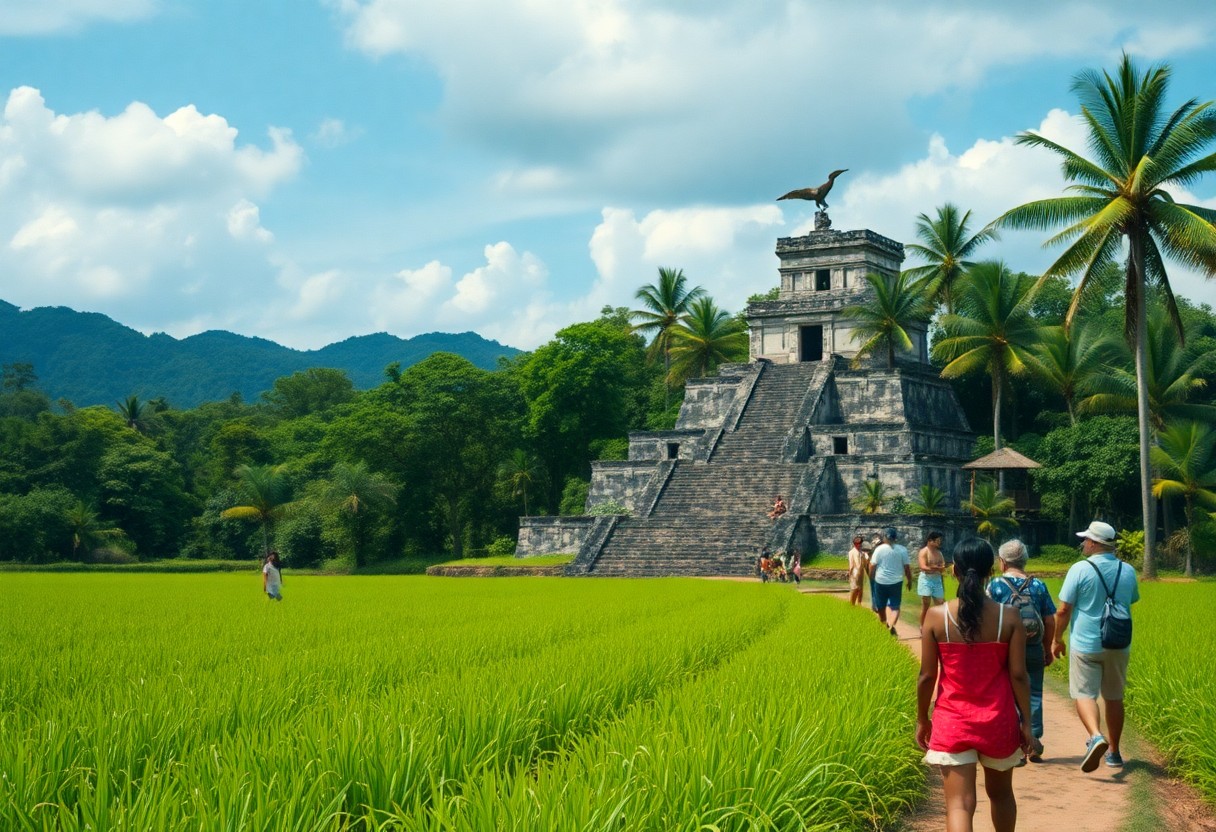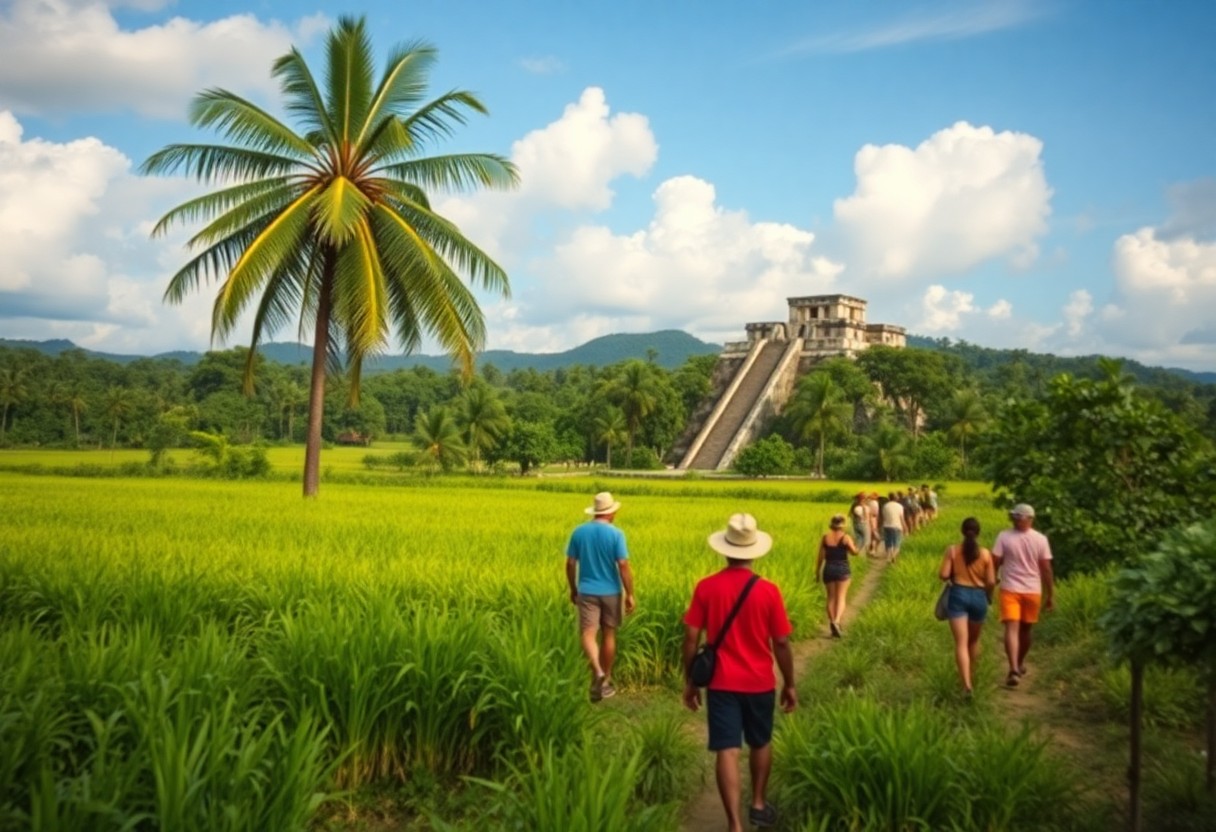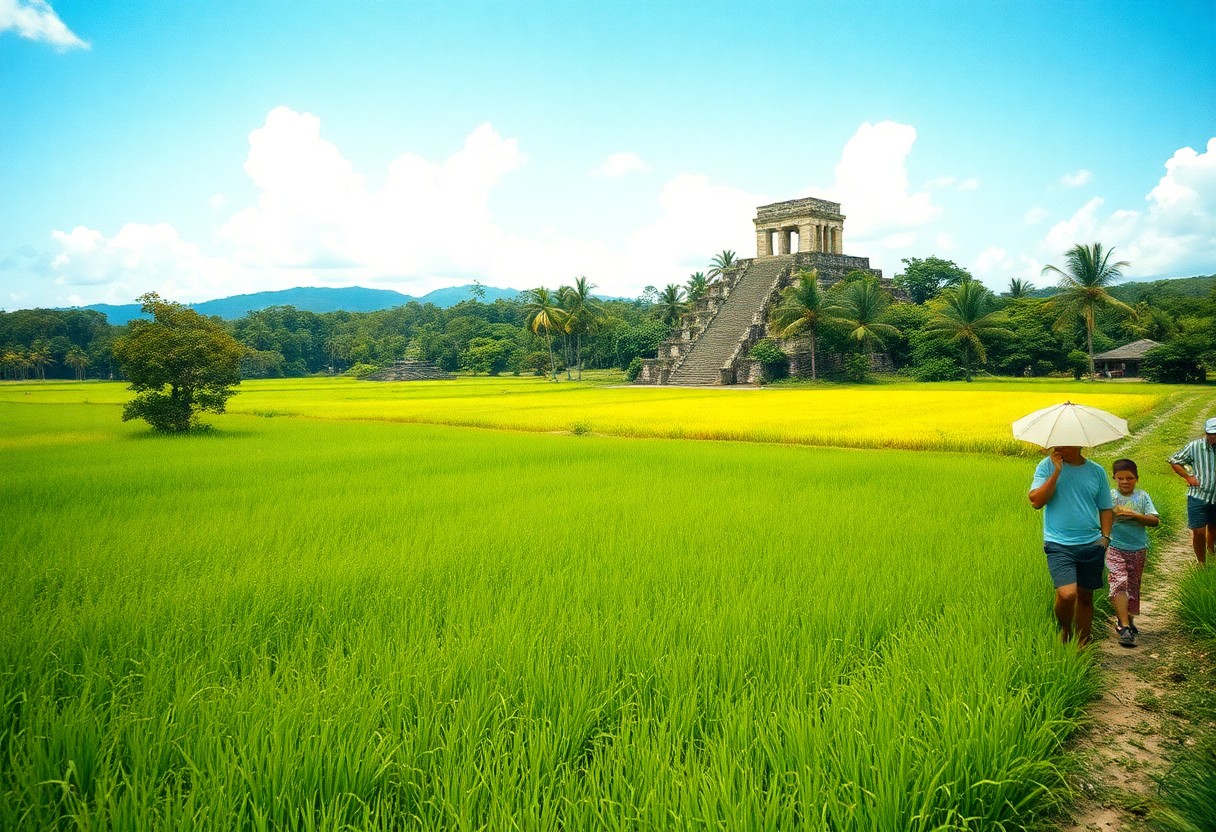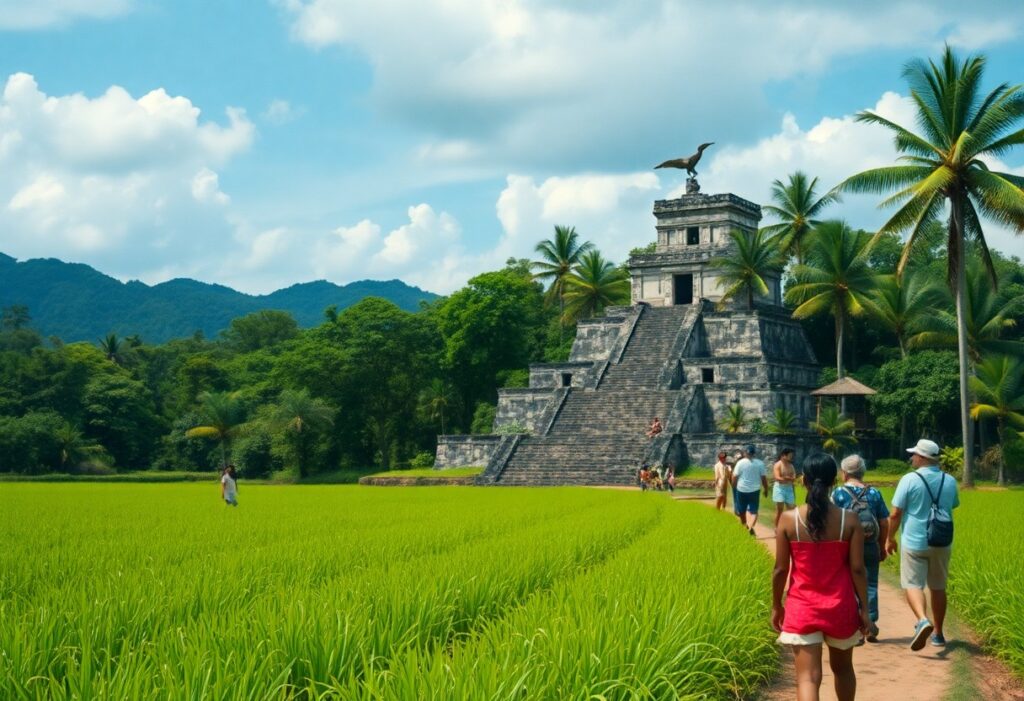The economic landscape of Belize plays a pivotal role in shaping the nation’s identity, as it showcases a dynamic and vibrant ecosystem that is transitioning from traditional economic sectors to innovative sustainable industries. You might be surprised to learn that the foundation of Belize’s economy largely rests on agriculture, with key crops such as sugar, bananas, and citrus fruits being instrumental in its early economic development. However, the emergence of ecotourism has opened up new avenues for transformative growth, presenting a unique opportunity for the country. As you explore the economic journey of Belize, you will notice how strategically leveraging its untouched natural beauty attracts both global investors and tourists, creating a distinctive economic model that harmonizes environmental conservation with economic progress. Through understanding these evolving dynamics, you will gain valuable insights into Belize’s commitment to economic sustainability.

Unveiling the Historical Context of Belize’s Economic Development
The evolution of Belize’s economic framework has been intricately woven through centuries of colonial influences and extensive natural resource exploitation. The roots of Belize’s economic history can be traced back to the impact of the indigenous Maya civilizations, whose contributions laid the foundational groundwork for future economic developments. In the colonial era, British powers reshaped the region into a resource-extraction economy, where early settlers known as Baymen prioritized the harvesting of valuable timber and established extensive trade networks. This colonial phase drastically altered Belize’s economic foundations and set the stage for the transformative changes that would follow, paving the way for modern economic activities.
Examining the Economic Significance of Logging in Belize
During the 18th and 19th centuries, the extraction of mahogany and logwood became central to Belize’s economic activities. It is noteworthy that these valuable timber resources attracted British entrepreneurs who established extensive logging camps and developed refined extraction methodologies. The logging industry evolved into a dominant economic force, crafting a robust international trade network that positioned Belize as a leading timber exporter within the Caribbean region. This dynamic not only stimulated economic growth but also laid a solid foundation for subsequent economic endeavors, showcasing the historical significance of logging in Belize’s economic narrative.
Understanding the Emergence of Sugar and Bananas as Economic Pillars
From the late 19th to the early 20th centuries, agricultural commodities began to assert their dominance as essential economic sectors for Belize. You will observe that sugar and banana production eventually overshadowed logging as the primary economic activities. These crops became fundamental export commodities, revolutionizing agricultural landscapes and creating new economic opportunities for local farmers and international traders alike. An understanding of Belize’s agricultural evolution reveals a multifaceted economic transformation, where sugar production gained significant prominence, leading to the establishment of large plantations that employed advanced cultivation techniques. The banana industry also rose to prominence, becoming a critical export sector that generated substantial economic prospects. Major international companies like Fyffes played an instrumental role in nurturing banana plantations, which subsequently became a major source of foreign exchange for the nation.

The Phenomenal Expansion of Belize’s Tourism Industry
When examining Belize’s economic transformation, it becomes clear that tourism has emerged as a key economic driver. This sector has expanded rapidly, attracting international visitors with its breathtaking landscapes and rich cultural experiences. Currently, tourism contributes nearly 40% of the country’s GDP, indicating a significant shift from a traditional agricultural economy to a more diversified economic framework. The government has taken strategic steps to position Belize as a top travel destination for those seeking authentic and sustainable travel experiences, leveraging the nation’s natural beauty and cultural heritage.
Diving into the Rise of Eco-Adventures in Belize
Between 2010 and 2019, Belize witnessed an extraordinary surge in eco-tourism, reflecting the growing global interest in sustainable travel. You will discover that adventure travelers are increasingly drawn to the country’s unspoiled rainforests, diverse wildlife reserves, and culturally significant archaeological sites. Sustainable tourism practices have become core to Belize’s tourism strategy, attracting eco-conscious visitors who yearn for meaningful interactions with nature and local communities. This shift not only fosters a deeper appreciation for the environment but also promotes cultural exchange and economic benefits for local populations.
Exploring Reef-Based Tourism: A Treasure of Opportunities
The tourism sector along Belize’s breathtaking coastlines has dramatically transformed the country’s economic landscape. You will be captivated by the Belize Barrier Reef, a UNESCO World Heritage site that draws marine enthusiasts from around the globe. Activities such as diving, snorkeling, and marine exploration have become vital revenue streams, enticing thousands of international tourists each year. This iconic reef spans approximately 300 kilometers and showcases one of the most diverse marine ecosystems on the planet. Marine tourism generates over $180 million annually, providing essential support to local communities and conservation initiatives. The reef’s ecological significance and immense tourism potential render it an invaluable economic asset, attracting marine biologists, conservationists, and adventure seekers alike.
Here’s the content for the chapter and subsections:
Identifying and Addressing Economic Challenges Facing Belize
While Belize grapples with a range of economic challenges that hinder its development, you will encounter a complex array of issues, including structural limitations and external pressures. The nation faces significant challenges such as limited economic diversification, high unemployment rates, and susceptibility to global economic fluctuations, all of which restrict its potential for sustained growth and prosperity. Understanding these challenges is key to grasping the full scope of Belize’s economic landscape and the strategies needed to navigate them.
The Ongoing Challenge of National Debt in Belize
Throughout its economic history, national debt has remained a persistent challenge for Belize. You will notice that the country currently bears one of the highest debt-to-GDP ratios in the Caribbean, which severely hampers the government’s ability to invest in essential infrastructure and social programs. This financial burden significantly restricts economic expansion and discourages potential international investments, highlighting the urgent requirement for effective fiscal strategies and sustainable economic policies.
The Impact of Natural Disasters on Economic Stability in Belize
On the environmental side, you will find that Belize is particularly vulnerable to climate-related disruptions. Natural disasters such as hurricanes, tropical storms, and flooding pose substantial risks to both the agricultural and tourism sectors, leading to recurring economic setbacks and necessitating significant investments in reconstruction. A deeper examination reveals that natural disasters entail more than just immediate economic damage; they create long-term vulnerabilities that disrupt agricultural productivity, damage crucial infrastructure, and undermine the tourism industry. The coastal regions are especially at risk, with rising sea levels and increased storm intensity threatening the stability of both the economy and local communities.

Comprehending Belize’s Import Dependency and Its Implications
To gain a comprehensive understanding of Belize’s economic framework, it is crucial to acknowledge its significant dependency on imports. With limited domestic manufacturing capabilities, you will find that the country is heavily reliant on importing essential goods, including machinery, fuel, and consumer products. This economic vulnerability means that nearly 50% of consumed goods are sourced from external markets, predominantly the United States. While this reliance on imports poses challenges to local economic stability, it also underscores Belize’s interconnectedness within the global trade system. These imports are vital for supporting the nation’s infrastructure, fostering technological advancement, and meeting the needs of consumers.
Projecting the Future: Belize’s Economic Growth Prospects
Despite the economic hurdles it faces, Belize is strategically positioning itself for transformative growth through diversification and innovative economic strategies. You will observe that the country is harnessing its natural resources, promoting sustainable tourism, and enhancing its digital infrastructure to create new economic opportunities. Belize’s potential lies in its ability to balance traditional sectors like agriculture with emerging industries such as technology and eco-friendly services, which promise to improve economic resilience and attract global investments.
Leading the Way with Sustainable Initiatives in Belize
Belize is increasingly prioritizing environmental preservation alongside economic development. You can witness the government’s commitment to green initiatives, which include renewable energy projects, conservation-driven tourism, and sustainable agricultural practices. These efforts are designed to protect the country’s rich biodiversity while creating economic pathways that support both ecological integrity and community development, steering Belize toward a more sustainable and prosperous future.
Welcoming Foreign Investment to Fuel Economic Growth
In alignment with these economic strategies, Belize is actively seeking international investors across various sectors. You will observe targeted initiatives in tourism, agriculture, and emerging digital industries that promise attractive returns and strategic partnerships. The government is implementing investor-friendly policies aimed at establishing the country as an appealing destination for global capital. Belize offers unique investment opportunities across sectors such as eco-tourism, renewable energy, and agricultural technology. The nation’s strategic location, combined with progressive economic policies, enhances its allure as an investment destination. Potential investors are attracted to Belize’s stable political environment, tax incentives, and commitment to sustainable development, which help to mitigate traditional investment risks while offering promising long-term growth prospects.
Reflecting on Belize’s Journey Towards Economic Transformation
In light of these observations, it becomes apparent how Belize has carefully transformed its economic landscape from a focus on traditional agriculture to a multifaceted, sustainable economic model. Your understanding of the country’s economic evolution highlights a dynamic transition towards services, tourism, and ecotourism. By skillfully utilizing its natural resources and rich biodiversity, Belize has developed a resilient economic framework that balances growth with environmental stewardship. You will appreciate how the nation has effectively diversified its economic sectors, establishing itself as an attractive hub for international investment and sustainable development. This adaptable strategy ensures that Belize continues to cultivate a robust and forward-thinking economic vision.
Commonly Asked Questions about Belize’s Economic Landscape
Q: What are the primary economic sectors that drive growth in Belize?
A: Belize’s economy is primarily supported by three core sectors: agriculture, tourism, and services. Agricultural exports such as sugar, bananas, and citrus fruits significantly contribute to national income. The tourism sector, especially ecotourism, generates substantial revenue by leveraging Belize’s diverse natural landscapes and unique marine ecosystems. Additionally, service industries, including financial services and international trade, complement these foundational economic drivers.
Q: How does ecotourism contribute to Belize’s economic development?
A: Ecotourism serves as a strategic economic pillar for Belize, attracting international visitors who seek sustainable travel experiences. The Belize Barrier Reef, UNESCO World Heritage sites, and expansive national parks provide distinctive opportunities for eco-conscious travelers. This sector not only generates direct income through tourism spending but also supports local communities by creating jobs in conservation, hospitality, and guided expedition services.
Q: What are the main challenges Belize faces in maintaining economic stability?
A: Belize faces a range of economic challenges, including vulnerability to external economic fluctuations, the impacts of climate change on agriculture, and reliance on limited export commodities. In response, the nation is actively diversifying its economic portfolio by investing in renewable energy initiatives, expanding service sectors, and promoting sustainable tourism development. International collaboration and strategic economic policies play a crucial role in mitigating potential financial risks and strengthening long-term economic resilience.
The Article Belize’s Economy Explained: From Agriculture to Ecotourism appeared first on Belize Travel Guide
The Article Belize’s Economy: Agriculture to Ecotourism Insights Was Found On https://limitsofstrategy.com



It’s fascinating to see how Belize is navigating the shift from agriculture to ecotourism. I love how you pointed out the importance of its natural beauty in attracting both investors and tourists. It’s a great reminder that sustainability doesn’t just protect the environment; it can drive economic growth too.
You’ve touched on an essential point about Belize’s journey. The transition from agriculture to ecotourism is not just a shift in how the economy operates but a significant cultural movement as well. Belize has this incredible wealth in its natural resources—lush jungles, pristine beaches, and an astounding barrier reef—that not only need protection but also present a unique opportunity for sustainable development.
You’ve captured the essence of Belize’s journey beautifully. The shift from agriculture to ecotourism really does reflect broader cultural changes, not just economically but in how people connect with their land and their resources. It’s interesting to see how those lush jungles and pristine beaches, once primarily seen as resources for agriculture, are now appreciated for their ecological wealth and potential for sustainable tourism.
You’ve touched on such an important point about the transformation in how Belizeans view their environment. It’s fascinating to think about how the perception of those vibrant jungles and stunning coastlines has evolved over the years. Initially, the lush landscapes were primarily tools for agriculture, a way to support livelihoods and provide food. But with time, people started recognizing the intricate ecosystems intertwined with their daily lives.
“Discover more about Belize’s stunning ecosystems and how you can experience its beauty while supporting sustainable tourism—check it out here!”
https://beethovenplus.com/emailoctopus
I appreciate your reflections on the evolving perception of Belize’s environment. It’s intriguing to see how attitudes shift over time, especially in a country rich in biodiversity. I’ve noticed that as communities begin to embrace the value of conservation and eco-tourism, there’s a greater collective responsibility for preserving those vibrant jungles and coastlines.
It’s fascinating how that journey reflects not just economic shifts but deeper connections to identity and culture. The way people in Belize are beginning to see their environment through the lens of ecological wealth is so significant. It’s almost poetic that the very landscapes once prioritized for agriculture are now celebrated for their biodiversity and ecological integrity.
You bring up such an important point about the relationship between environment and identity in Belize. It’s interesting to see how this shift in perspective encourages a deeper appreciation for the unique ecosystems there. Rather than just seeing the land as a resource for crops, the focus on biodiversity opens up new ways for people to connect with their heritage and the natural world around them.
You bring up such a rich perspective on the evolving relationship people in Belize have with their surroundings. It’s striking how a shift in economic priorities can lead to a whole new narrative around identity and culture. When agriculture dominated, the land was seen mostly as a means to an end—a source of income. But now, recognizing the value of biodiversity and ecological integrity invites a deeper appreciation for the natural world and its myriad roles in our lives.
“Absolutely, it’s a beautiful transformation! If you’re interested in exploring more about this journey and the vital role of ecological wealth in Belize, check out this insightful resource.”
https://beethovenplus.com/FaceTune
You’ve touched on such an important point about how Belizeans are redefining their relationship with the land. It’s fascinating to see how local communities are now weaving their cultural heritage into the fabric of ecotourism. They’re not just promoting natural beauty; they’re sharing stories, traditions, and knowledge passed down through generations, which adds so much depth to the visitor experience.
I’m glad you resonated with the shifts happening in Belize! If you’re curious to explore more about its incredible natural beauty and sustainable tourism opportunities, check out this link for a deeper dive into what makes this destination truly special.
https://beethovenplus.com/krystal
The intertwining of cultural heritage with ecotourism in Belize is such a pivotal aspect of what makes the destination unique. Local communities are embracing their histories, and it’s encouraging to see how this approach enhances the visitor experience. It’s not simply about observing beautiful landscapes; it’s about understanding the stories and traditions that have shaped those landscapes.
Thank you for your thoughtful comment! If you’re eager to discover more about Belize’s stunning landscapes and the unique stories that enrich the ecotourism experience, I highly recommend checking out this link for further insights.
https://beethovenplus.com/consult
It’s great to see your enthusiasm for what’s happening in Belize! The way communities are embracing their cultural stories and practices as part of ecotourism is truly inspiring. Each visit becomes a richer experience when travelers connect with the people and the land on a deeper level. The blend of traditional knowledge with sustainable practices not only enhances the visitor experience but also empowers local communities, making them active stewards of their environment.
I’m thrilled that you share my excitement about the cultural richness and sustainable practices in Belize! If you’re interested in discovering more about its breathtaking landscapes and the unique ecotourism experiences available, I invite you to explore this insightful resource.
https://beethovenplus.com/trustindex
You’ve captured the essence of what’s happening in Belize beautifully. It’s refreshing to see how local communities are not only preserving their cultural identities but also integrating them into ecotourism. This approach creates a richer experience for visitors, who leave with more than just picturesque photos—they take home stories and a deeper understanding of the culture.
Your observation about Belize’s evolution is spot on. The way communities are shifting their focus from agriculture to ecotourism highlights a fascinating transformation in mindset. It’s not just about changing economic strategies; it’s a deep-seated cultural shift that reflects how people view their relationship with nature.
Thank you for your insightful comment! If you’re curious to explore more about Belize’s incredible transformation and its unique offerings, check out this link for a closer look at its natural treasures and sustainable tourism opportunities.
https://beethovenplus.com/trustindex
You’ve really summed it up nicely. It’s fascinating to see how Belize is navigating this shift. The move towards ecotourism has opened up so many avenues for locals to connect with their environment in a more sustainable way. It’s like they’re rediscovering their roots, but with a fresh perspective that balances economic needs with environmental awareness.
I appreciate your perspective on Belize’s transformation—it truly is a reflection of how communities are redefining their identities through ecotourism. This shift from agriculture to a focus on sustainable tourism not only fosters economic growth but also promotes a deeper connection with the environment.
You’ve nailed it with that insight into Belize’s transformation. It’s fascinating how these shifts, especially in small communities, can really reshape their identities and sense of purpose. Moving from traditional agriculture to ecotourism isn’t just about economics; it’s also about fostering a relationship with the land and its resources.
Thank you for your thoughtful insight! If you’re interested in exploring more about Belize’s ecotourism journey and how you can be a part of this transformative experience, check out our latest offerings.
https://beethovenplus.com/emailoctopus
You’ve touched on a crucial point about how people in Belize are redefining their relationship with the land. It’s really fascinating to see the transformation in perspectives over the years. Agriculture has deep roots in the culture here, but as folks start to pivot towards ecotourism, there’s a palpable shift in how the community values their natural surroundings.
You’ve captured a key aspect of Belize’s transformation perfectly. It’s impressive how the country is leveraging its rich biodiversity not just for conservation but also to ignite a thriving ecotourism sector. The way local communities integrate sustainable practices into their livelihoods shows a promising path where economic growth and environmental stewardship go hand-in-hand.
I’m glad you found the article enlightening! If you’re interested in exploring how Belize’s commitment to sustainability is creating exciting opportunities, check out this link for more insights.
https://beethovenplus.com/PhotoLeap
It’s great to hear your thoughts on Belize’s transformation, and you really hit the nail on the head about how the country is using its biodiversity as a cornerstone for a flourishing ecotourism sector. What’s fascinating to me is the way local communities are not just passive participants in this shift but active players who are reshaping their destinies.
You’ve touched on a significant thread in Belize’s development narrative. The blend of biodiversity conservation and economic growth is a fascinating example of how countries can find a middle ground in today’s challenging landscape. Belize’s commitment to ecotourism is truly inspiring, as it mirrors a growing global movement toward sustainability.
Thanks for your thoughtful comment! If you’d like to delve deeper into how Belize’s sustainable practices are shaping its future, I highly recommend checking out this insightful link.
https://beethovenplus.com/FaceTune
It’s inspiring to see how passionate you are about Belize’s journey! The shift to ecotourism really highlights the interconnectedness of our environment and economy. When you think about it, Belize’s natural beauty isn’t just a backdrop; it’s a cornerstone of the community’s identity and resilience.
You’ve hit on a crucial aspect of Belize’s evolution as it embraces ecotourism. The balance between agricultural practices and eco-friendly tourism is not just a tactical shift; it reflects a deeper understanding of what the country can offer. While agriculture has been a backbone for decades, many communities are recognizing that sustainable tourism is not just an alternative source of income; it can foster a sense of pride in Belize’s unique landscapes and biodiversity.
You’ve raised some great points about Belize’s shift towards ecotourism. It’s interesting to see how communities are starting to blend agriculture with eco-friendly tourism, creating a synergy that not only opens economic opportunities but also deepens their connection to the land. I’ve read that some local farmers are even diversifying their practices by incorporating elements like organic farming and agroforestry, which not only helps the environment but also enhances the tourist experience.
You hit the nail on the head about the transition Belize is making. It’s really interesting to watch how that blend of agriculture and ecotourism can create something special. For a place like Belize, with its rich biodiversity and stunning landscapes, the potential is huge. I think a lot of people don’t realize that pushing for sustainability doesn’t just mean conserving nature—it’s also about providing communities with better livelihoods and protecting cultural heritage.
Thank you for your insightful comment! If you’re interested in exploring more about Belize’s incredible journey towards sustainable ecotourism, check out this link for some inspiring stories and opportunities.
https://beethovenplus.com/PhotoLeap
You’re spot on about the blend of agriculture and ecotourism. In Belize, it’s fascinating to see communities actively engaged in both preserving their natural resources and finding ways to thrive financially. This balance isn’t just about saving the environment; it means families can invest in their future while showing off their culture and traditions.
Absolutely, and if you’re curious to dive deeper into Belize’s inspiring progress in sustainable ecotourism, I highly recommend checking out this link for some captivating stories and opportunities that highlight this journey: https://beethovenplus.com/PhotoLeap.
https://beethovenplus.com/eComToolkit
I appreciate your perspective on the importance of blending agriculture and ecotourism, especially in a place like Belize. It really showcases how maintaining a connection to the land can be both a cultural and financial boon for communities. What’s inspiring is seeing just how these families weave their traditions into the tourism experience, allowing visitors to engage in authentic ways that promote understanding and respect for the local environment.